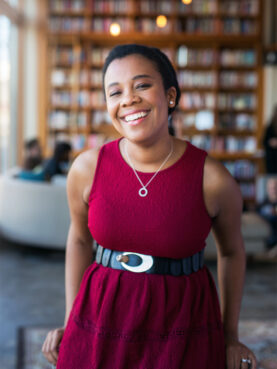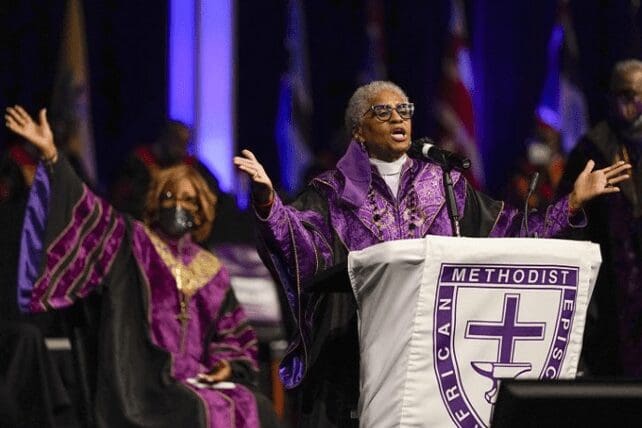(RNS) — The Black church is one of the most visible institutions in American life, its national leaders’ names nearly synonymous with the civil rights movement from the 1960s to the present day. It’s a powerfully unifying force, with 74% of Black adults identifying as Christian. Before the pandemic, some 40% of those Christians reported attending a church service in the prior week.
Behind that legacy of social justice and faithfulness are prophetic spiritual leaders and theologians, some of them household names, others all but anonymous to the wider world.
The Rev. Jennifer Bailey, founder of the Faith Matters Network, is dedicated to gathering the wisdom of fellow Black Christian thinkers for the benefit of a far broader circle of spiritual social justice leaders.
“Faith Matters Network was really born out of a curiosity about how folks inclined to see themselves as rooted in a social justice ethic were finding and building meaning and community,” said Bailey in a recent interview.
A minister in the African Methodist Episcopal Church, Bailey wants her network to include formally trained clergy from across the spectrum of faith, but also laypeople who have taken on roles of sacred service in faith-based organizations.

The Rev. Jennifer Bailey. Courtesy photo
Bailey sees this approach as necessary in a time when religion is undergoing fundamental changes in America, especially among millennials and Gen Z, groups that are often portrayed as having lost interest in religion. “There’s still a deep yearning for spirituality and deep connection and community,” she said, reprising a theme from “To My Beloveds,” her 2021 book on race, loss and what she calls “communal hope.”
“Whether people call the (higher power) God and whether or not they go to services,” she explained, “they are ‘composting’ religion, taking what has been most nourishing and useful and letting go of the rest.”
Bailey grew up in a largely white part of Chicago, a place she writes in “To My Beloveds” that “resists change in the name of tradition and where difference is a deficit rather than a strength.” She wrote that the school playground was its own education, teaching her that “the politics of race is a messy and violent business.”
Rather than succumbing to those divisions, Bailey became a bridge builder.
She began as a community organizer, working mostly on food justice, before and while attending Vanderbilt Divinity School. When she graduated in 2014, she launched Faith Matters Network, working to create “a place of care at the center of social movements, focusing on clergy, community organizers and activists — healing the healers,” she said.
“We are really committed to thinking about how we accompany folks in the work of social justice for the long term, over the course of their lives, and empower them with the tools and resources they need to be committed to that vision of a more just and grounded society,” Bailey said.
In 2016, after a bruisingly divisive presidential election, she collaborated with the grief support organization The Dinner Party, which helps to bring people who have lost a loved one for a meal, to create The People’s Supper. Building on the Dinner Party’s model of growing mutual support out of communal dinners, The People’s Supper facilitates meals for communities facing deep divisions: places torn apart by disasters, racial barriers or politics.

